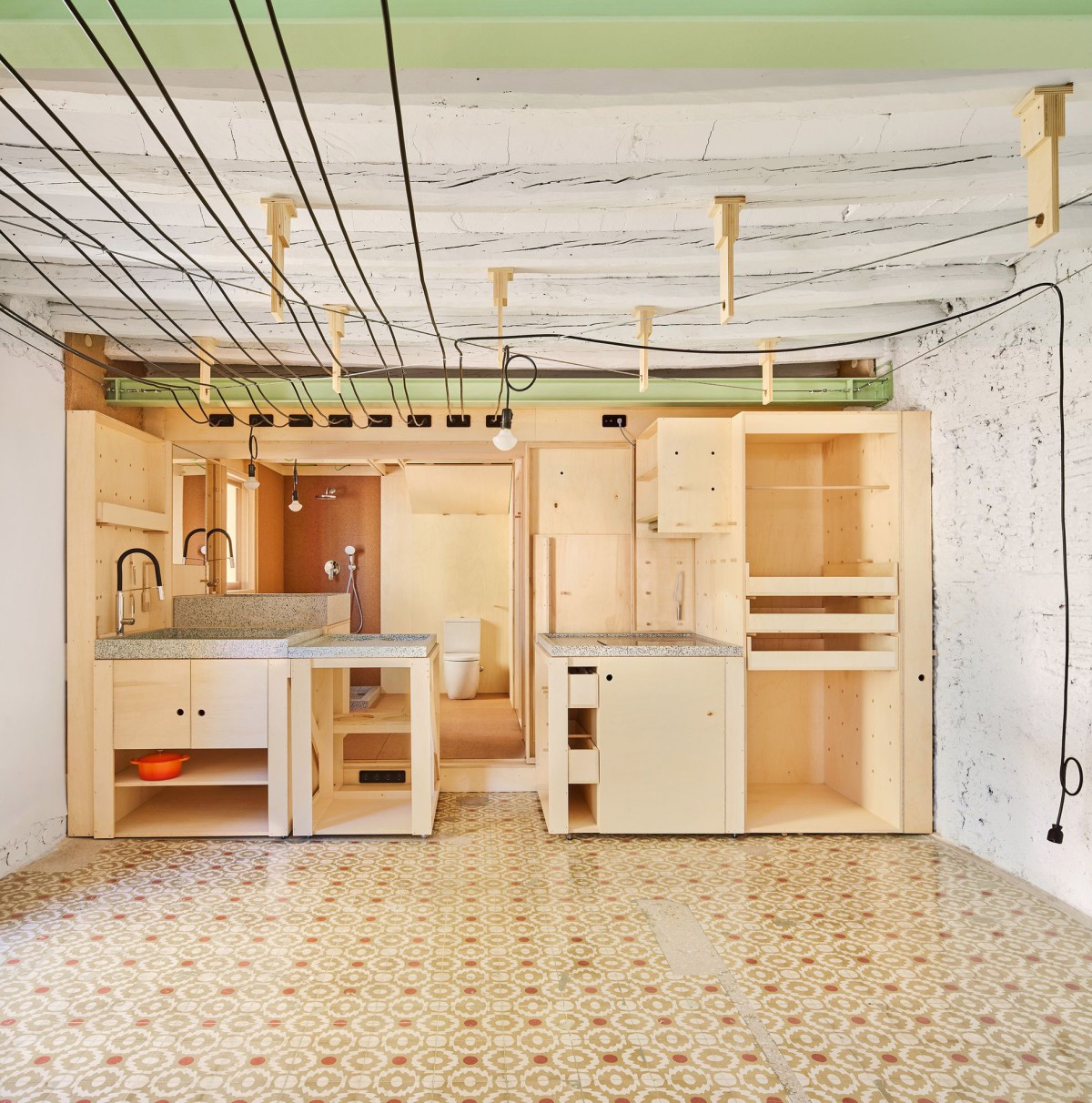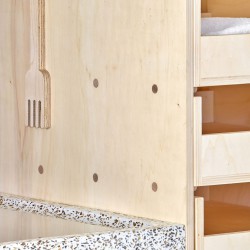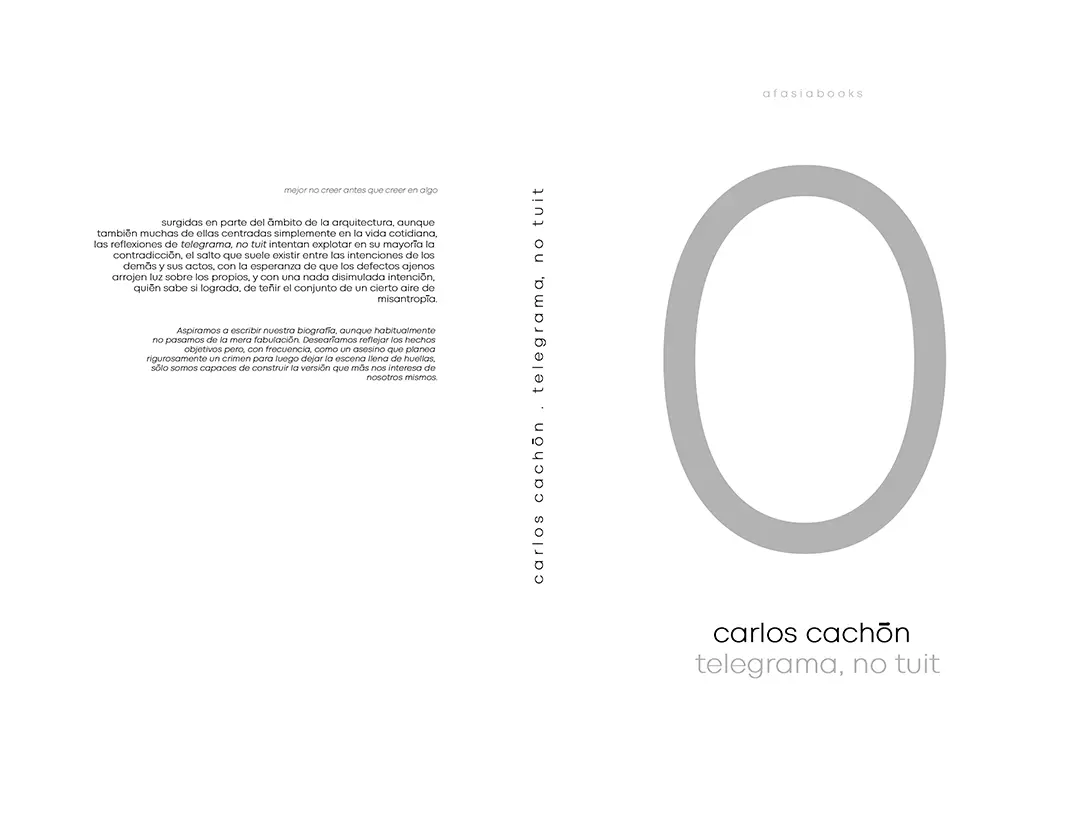Aixopluc . photos: © José Hevia
Al-fondaq is an arab word that describes a building that is both an overnight stay for travelers and merchants, and a communal storage and trading of grain surplus. It is the spatial prelude of the lonja. The catalan word fonda (lodge) has its direct origin in it. This name is a homage to the muslim heritage of our territory. Alfondac is a disperse guest house, in various locations, far from each other, so that each can become a stage on your own journey. The foundational act of architecture is to host. To welcome others, foreigners or friends, strangers or alike.
Alfondac is always on the making, constantly improved and transformed. And we value what your emotions and thoughts during and after your stay to help us on the constant iteration of each space, component and part. An inhabitable prototype. Each one of these houses questions a traditional assumption of what a domestic space is. It is a Living Lab focused on how each of your distinct needs, hopes, dreams and fears in an unconventional habitat.
Homeful. At Alfondac we test and present our Homeful system, a family of modular home components that allow a fast, cheap and durable transformation of buildings that have long been abandoned, suggesting multiple situations that each inhabitant can easily configure according to changing daily needs, weekly, seasonal or lifelong. Its materials and processes are of very low impact on the environment and can be assembled with DIY tools.
How can we re-inhabit abandoned places in the most economical, fastest, and predictable way so that they become not only inhabitable, but responsive to the contemporary and arcane needs of human beings?
If we focus our efforts on a very compact layout, the costs of services and materials will be minimized, and the space freed up for the inhabitants will be maximized to transform them as they see fit. This amalgam of activities is also an opportunity to explore unexpected relationships between the traditional separation of domestic spaces that still have a strong patriarchal and hygienic burden, blurring their borders and bringing them closer to freer and braver ways of living.
The first iteration of this system has been implemented in the upcycling of an old photography studio in the Raval Santa Anna in Reus. Here, we have developed a family of 100×100 cms terrazzo tops, manufactured by Huguet Mallorca. Each of the pieces in the series responds to a ‘two for one’ logic, where the traditionally separate activities of cooking and bathing can coexist. For example, the entire surface of the kitchen top becomes a sink, with two different depths and areas for washing and handling food, drying kitchen utensils, and personal hygiene as well.
_
Al-fondaq es una palabra árabe para un edificio que es tanto una estadía de una noche para viajeros y comerciantes, como un almacén comunitario y comercio por granos excedentes. Es el preludio espacial del mercado. Es el antepasado directo de la palabra "fonda". Este nombre es un homenaje a la herencia musulmana de nuestro territorio del Camp de Tarragona. Alfondac es una casa de huéspedes dispersa en varios lugares, lejos el uno del otro, para que cada uno pueda convertirse en un escenario para su propio viaje. Alfondac no es un nuevo concepto de hotel, es una idea arcaica. Un acto fundador de la arquitectura es la hospitalidad. Bienvenida a otras personas, extranjeros o amigos, extraños o iguales. Alfondac siempre está en construcción, constantemente mejorando y transformándose. Y valoramos cuáles son sus emociones y pensamientos durante y después de su estadía para ayudarnos en la iteración constante de cada espacio, componente y parte. Un prototipo habitable. Cada uno de los hábitats que conforman Alfondac cuestiona un paradigma de lo que es un espacio doméstico. Este es un Living Lab enfocado en cómo cada una de sus necesidades, esperanzas, sueños y miedos florecen en espacios no convencionales. Hogareño. En Alfondac probamos y presentamos nuestro sistema Homeful, una familia de componentes modulares para el hogar que permite una transformación rápida, económica y duradera de edificios que han sido abandonados durante mucho tiempo, lo que sugiere múltiples situaciones que cada habitante puede configurar fácilmente de acuerdo con las cambiantes necesidades diarias, semanalmente, estacional o de por vida. Sus materiales y los procesos tienen un impacto muy bajo en el medio ambiente y se pueden ensamblar con herramientas de bricolaje. ¿Cómo podemos volver a habitar lugares abandonados de la manera más económica, rápida y predecible para que no solo se vuelvan habitables, sino que respondan a las necesidades contemporáneas y arcanas de los seres humanos? Si enfocamos nuestros esfuerzos en un diseño muy compacto, los costos de los servicios y materiales se minimizarán, y el espacio liberado para los habitantes se maximizará para transformarlos como mejor les parezca. Esta amalgama de actividades también es una oportunidad para explorar relaciones inesperadas entre la separación tradicional de espacios domésticos que aún tienen una fuerte carga patriarcal e higiénica, difuminando sus fronteras y acercándolos a formas de vida más libres y valientes. Guarda esta imagen en tus favoritos© José Hevia© José Hevia La primera iteración de este sistema se ha implementado en el reciclaje de un antiguo estudio de fotografía en el Raval Santa Anna en Reus. Aquí, hemos desarrollado una familia de tapas de terrazo de 100x100 cms, fabricadas por Huguet Mallorca. Cada una de las piezas de la serie responde a una lógica de "dos por uno", donde las actividades tradicionalmente separadas de cocción y baño pueden coexistir. Por ejemplo, toda la superficie de la parte superior de la cocina se convierte en un fregadero, con dos profundidades y áreas diferentes para lavar y manipular alimentos, secar los utensilios de cocina e higiene personal.
























